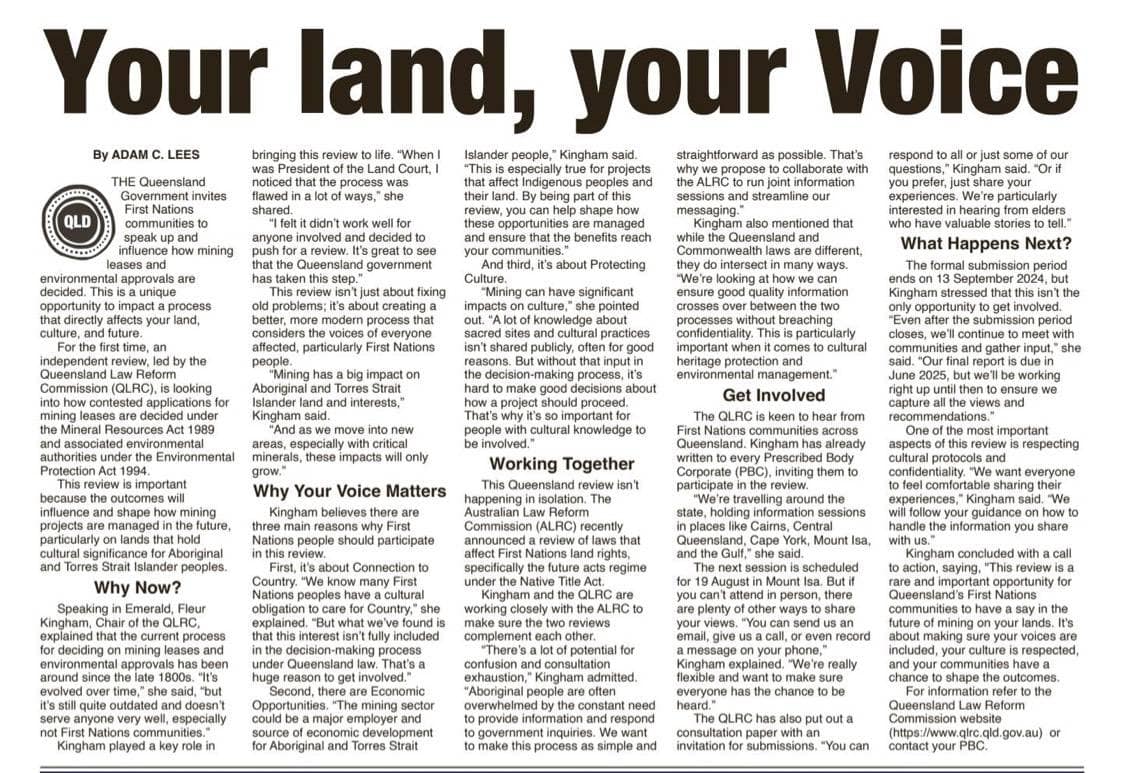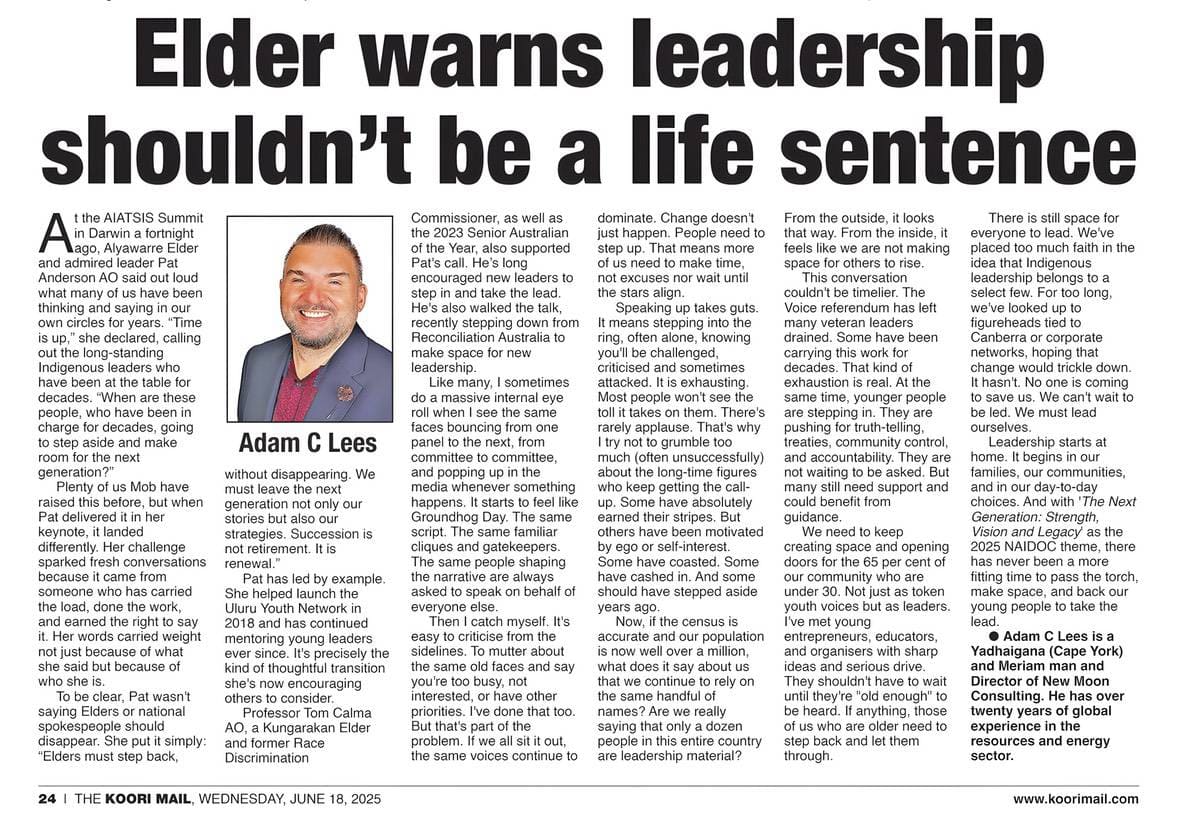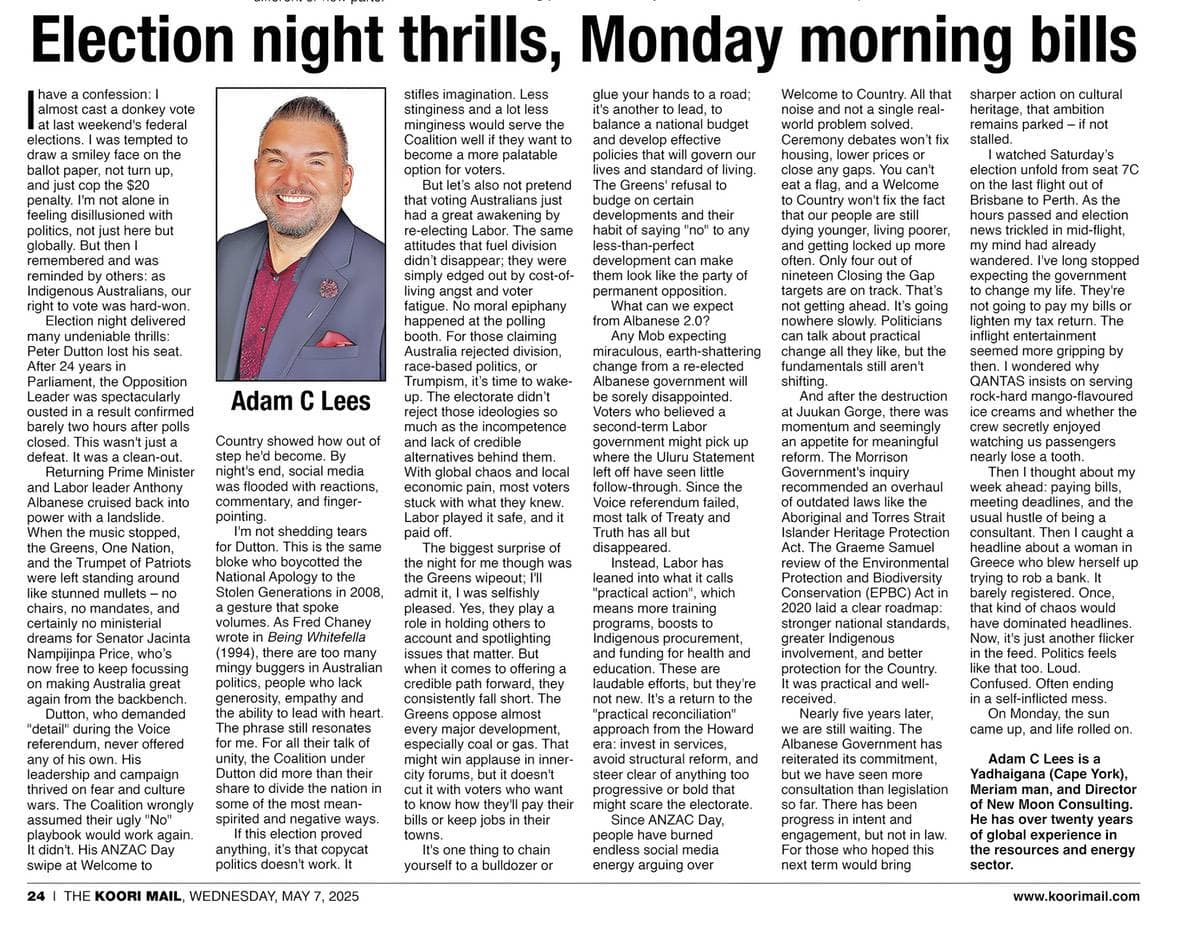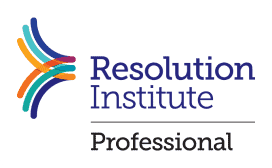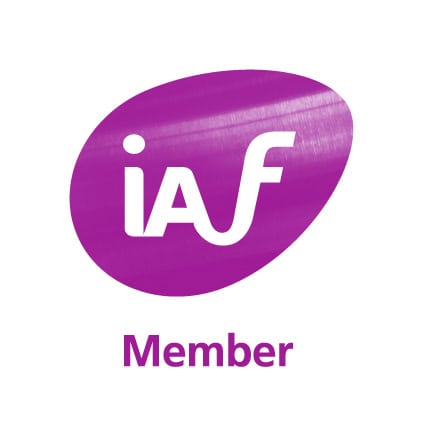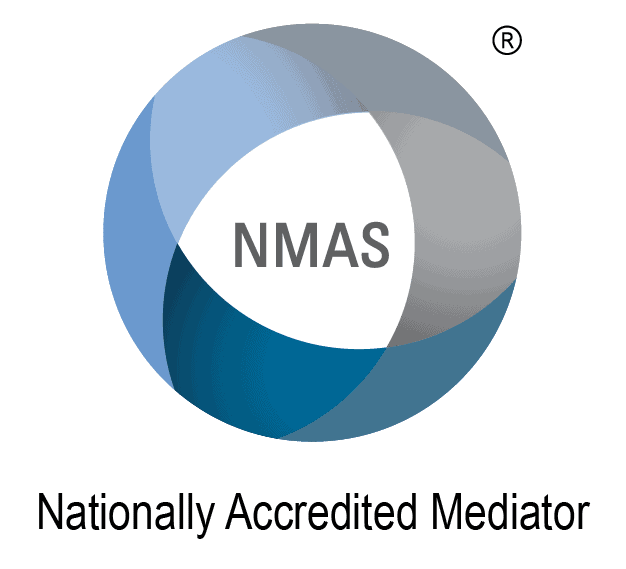The Queensland Government invites First Nations communities to speak up and influence how mining leases and environmental approvals are decided. This is a unique opportunity to impact a process that directly affects your land, culture, and future.
For the first time, an independent review, led by the Queensland Law Reform Commission (QLRC), is looking into how contested applications for mining leases are decided under the Mineral Resources Act 1989 and associated environmental authorities under the Environmental Protection Act 1994.
This review is important because the outcomes will influence and shape how mining projects are managed in the future, particularly on lands that hold cultural significance for Aboriginal and Torres Strait Islander peoples.
Why Now?
Speaking in Emerald, Fleur Kingham, Chair of the QLRC, explained that the current process for deciding on mining leases and environmental approvals has been around since the late 1800s. “It’s evolved over time,” she said, “but it’s still quite outdated and doesn’t serve anyone very well, especially not First Nations communities.”
Kingham played a key role in bringing this review to life. “When I was President of the Land Court, I noticed that the process was flawed in a lot of ways,” she shared. “I felt it didn’t work well for anyone involved and decided to push for a review. It’s great to see that the Queensland government has taken this step.”
This review isn’t just about fixing old problems; it’s about creating a better, more modern process that considers the voices of everyone affected, particularly First Nations people. “Mining has a big impact on Aboriginal and Torres Strait Islander land and interests,” Kingham said. “And as we move into new areas, especially with critical minerals, these impacts will only grow.”
Why Your Voice Matters
Kingham believes there are three main reasons why First Nations people should participate in this review.
First, it’s about Connection to Country. “We know many First Nations peoples have a cultural obligation to care for Country,” she explained. “But what we’ve found is that this interest isn’t fully included in the decision-making process under Queensland law. That’s a huge reason to get involved.”
Second, there are Economic Opportunities. “The mining sector could be a major employer and source of economic development for Aboriginal and Torres Strait Islander people,” Kingham said. “This is especially true for projects that affect Indigenous peoples and their land. By being part of this review, you can help shape how these opportunities are managed and ensure that the benefits reach your communities.”
And third, it’s about Protecting Culture. “Mining can have significant impacts on culture,” she pointed out. “A lot of knowledge about sacred sites and cultural practices isn’t shared publicly, often for good reasons. But without that input in the decision-making process, it’s hard to make good decisions about how a project should proceed. That’s why it’s so important for people with cultural knowledge to be involved.”
Working Together with the Commonwealth
This Queensland review isn’t happening in isolation. The Australian Law Reform Commission (ALRC) recently announced a review of laws that affect First Nations land rights, specifically the future acts regime under the Native Title Act.
Kingham and the QLRC are working closely with the ALRC to make sure the two reviews complement each other.
“There’s a lot of potential for confusion and consultation exhaustion,” Kingham admitted. “Aboriginal people are often overwhelmed by the constant need to provide information and respond to government inquiries. We want to make this process as simple and straightforward as possible. That’s why we propose to collaborate with the ALRC to run joint information sessions and streamline our messaging.”
Kingham also mentioned that while the Queensland and Commonwealth laws are different, they do intersect in many ways. “We’re looking at how we can ensure good quality information crosses over between the two processes without breaching confidentiality. This is particularly important when it comes to cultural heritage protection and environmental management.”
How You Can Get Involved
The QLRC is keen to hear from First Nations communities across Queensland. Kingham has already written to every Prescribed Body Corporate (PBC), inviting them to participate in the review. “We’re travelling around the state, holding information sessions in places like Cairns, Central Queensland, Cape York, Mount Isa, and the Gulf,” she said.
The next session is scheduled for 19 August in Mount Isa. But if you can’t attend in person, there are plenty of other ways to share your views. “You can send us an email, give us a call, or even record a message on your phone,” Kingham explained. “We’re really flexible and want to make sure everyone has the chance to be heard.”
The QLRC has also put out a consultation paper with an invitation for submissions. “You can respond to all or just some of our questions,” Kingham said. “Or if you prefer, just share your experiences. We’re particularly interested in hearing from elders who have valuable stories to tell.”
What Happens Next?
The formal submission period ends on 13 September 2024, but Kingham stressed that this isn’t the only opportunity to get involved. “Even after the submission period closes, we’ll continue to meet with communities and gather input,” she said. “Our final report is due in June 2025, but we’ll be working right up until then to ensure we capture all the views and recommendations.”
One of the most important aspects of this review is respecting cultural protocols and confidentiality. “We want everyone to feel comfortable sharing their experiences,” Kingham said. “We will follow your guidance on how to handle the information you share with us.”
Kingham concluded with a call to action, saying, “This review is a rare and important opportunity for Queensland’s First Nations communities to have a say in the future of mining on your lands. It’s about making sure your voices are included, your culture is respected, and your communities have a chance to shape the outcomes.
For information refer to the Queensland Law Reform Commission website (https://www.qlrc.qld.gov.au) or contact your PBC.
